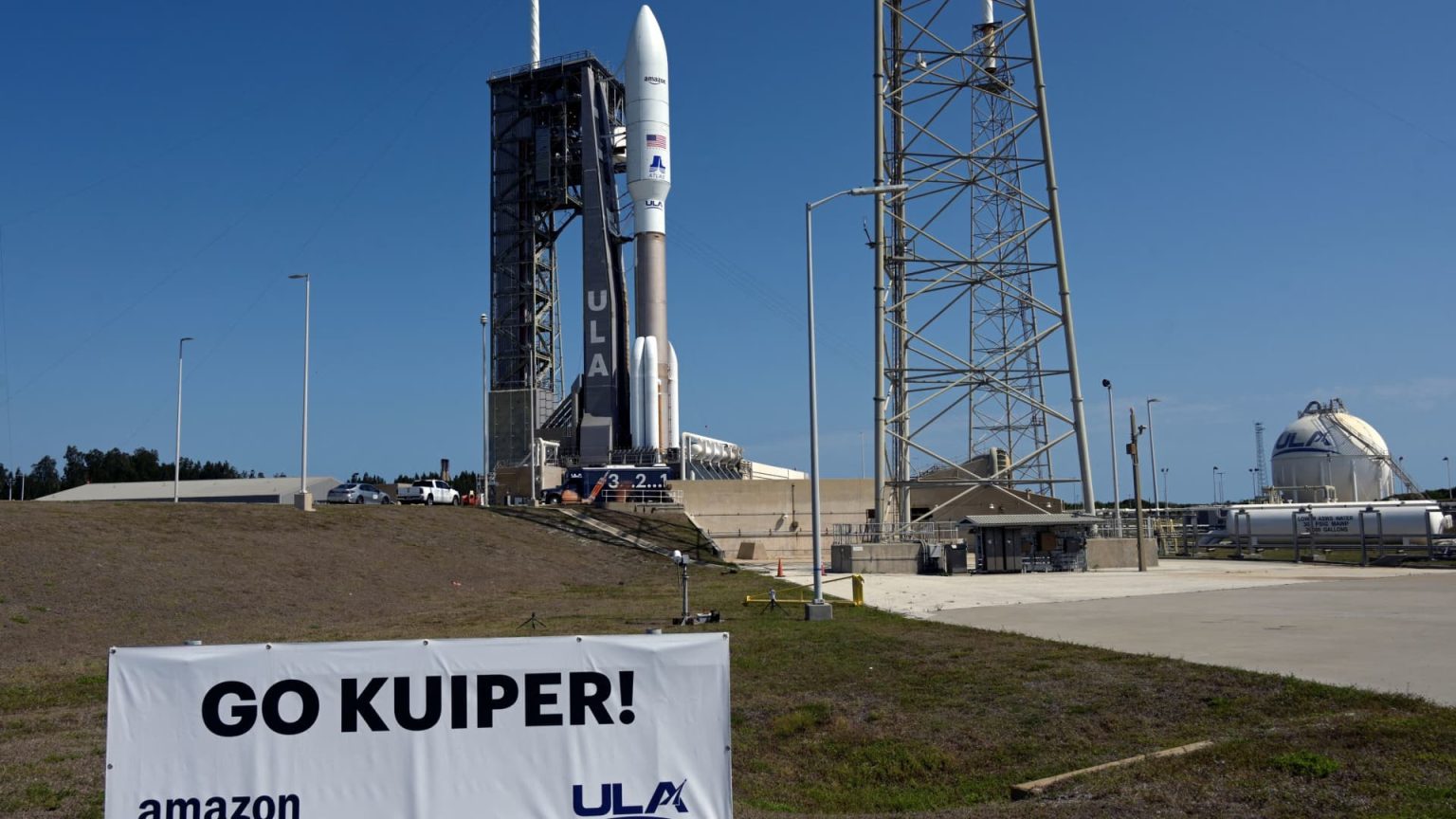United Launch Alliance (ULA) has postponed the launch of Amazon’s Project Kuiper internet satellites due to technical issues detected in the Atlas V rocket’s booster engine. The launch, originally planned for April 28, 2025, was rescheduled for Monday but faced another setback with only 30 minutes left in the countdown. ULA has assured that a new launch date will be provided as soon as possible, amid increasing competition in the satellite internet sector.
| Article Subheadings |
|---|
| 1) Technical Difficulties Delay Launch |
| 2) Previous Launch Success |
| 3) Competitive Landscape in Satellite Internet |
| 4) Amazon’s Plans for Project Kuiper |
| 5) Future Outlook for Satellite Launch Schedules |
Technical Difficulties Delay Launch
United Launch Alliance announced the delay of its second mission to deploy Amazon’s Project Kuiper internet satellites due to an issue involving the Atlas V rocket’s booster engine. Just 30 minutes before the scheduled launch, ULA identified a problem characterized by an “elevated purge temperature” in the booster engine. In a statement on the social media platform Bluesky, ULA CEO Tory Bruno explained that the issue related to a nitrogen purge line could not be resolved during the countdown. Consequently, ULA made the decision to scrub the launch for that day, emphasizing the importance of addressing technical difficulties to ensure future missions succeed.
Previous Launch Success
Prior to this delay, Amazon had success with its initial satellite launch, which took place in April 2025. That mission successfully sent 27 Kuiper internet satellites into low Earth orbit (LEO), a region positioned within 1,200 miles of Earth’s surface. The planned second launch aims to deploy another 27 satellites, bringing the total number of satellites in the Kuiper constellation to 54. The rapid deployment of multiple satellites is crucial for Amazon’s objectives for the project, allowing them to enhance their global internet coverage.
Competitive Landscape in Satellite Internet
The satellite internet industry is currently undergoing intense competition, with major players battling for market dominance. Amazon’s Project Kuiper is vying for a share of the growing demand for high-speed internet access from orbit, a market largely captured by Elon Musk‘s SpaceX with its popular Starlink service. Other competitors such as SoftBank-backed OneWeb and Viasat also pose significant challenges for Amazon’s ambitions. As companies rush to establish their positions in this rapidly evolving sector, the necessity for consistent and reliable satellite launches becomes ever more critical.
Amazon’s Plans for Project Kuiper
Amazon has set ambitious goals for Project Kuiper, targeting a total constellation size exceeding 3,000 satellites aimed at delivering high-speed internet to underserved and remote areas. A Federal Communications Commission (FCC) regulatory requirement mandates that Amazon must launch at least half of its planned constellation—1,618 satellites—before the deadline of July 2026. Failure to meet this requirement would jeopardize the project’s future and could significantly impact its market competitiveness.
Future Outlook for Satellite Launch Schedules
As ULA works to resolve the current technical issues and prepare for a future launch date, there remains a focus on the importance of maintaining a reliable schedule for satellite launches. The growing demand for high-speed internet from space has driven both ULA and Amazon to prioritize their operations. By successfully addressing the recent setbacks, they hope to reassure stakeholders, customers, and regulatory bodies of their commitment to moving forward with Project Kuiper. Moreover, establishing a consistent launch cadence will be crucial for meeting Amazon’s ambitious timeline and sustaining its competitive edge in the satellite internet landscape.
| No. | Key Points |
|---|---|
| 1 | ULA delayed the launch of Amazon’s Project Kuiper satellites due to a technical issue. |
| 2 | The initial launch successfully placed 27 satellites into orbit, with plans for a second launch. |
| 3 | The satellite internet industry is highly competitive, with key players like SpaceX dominating the market. |
| 4 | Amazon aims to deploy over 3,000 satellites to meet FCC requirements and provide internet access. |
| 5 | The importance of reliable launch schedules is crucial for future missions and project success. |
Summary
The ongoing delays in launching Amazon’s Project Kuiper satellites highlight the challenges faced by space launch operations. With significant technical difficulties arising just before a scheduled launch, the need for reliability in executing satellite deployments becomes ever more important. As the competition for satellite internet services intensifies, Amazon’s ability to overcome these hurdles will play a critical role in determining its success in the market.
Frequently Asked Questions
Question: What is Project Kuiper?
Project Kuiper is Amazon’s initiative aimed at deploying a constellation of satellites to provide high-speed internet access to remote and underserved regions across the globe.
Question: Why was the launch delayed?
The launch was delayed due to a technical issue described as an “elevated purge temperature” in the Atlas V rocket’s booster engine, which could not be resolved before the countdown was completed.
Question: What are the competitive players in the satellite internet market?
The satellite internet market is currently led by SpaceX’s Starlink, with other competitors including OneWeb and Viasat, all of which compete for a share of the growing demand for satellite-based internet services.


